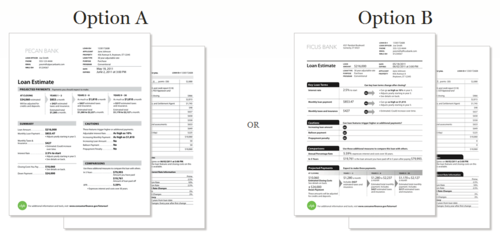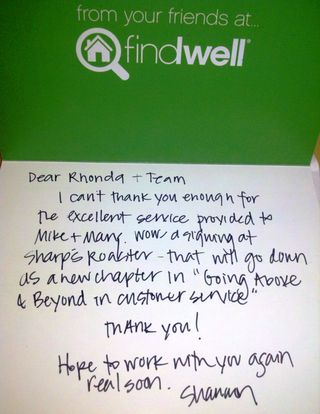This morning NAR released the Pending Home Sales report which revealed that "contract signings, dropped 11.6 percent in April from a downwardly revised 92.6 in March. The index is 26.5 percent below a cyclical peak of 111.5 in April 2010 when buyers were rushing to beat the contract deadline for the home buyer tax credit." Pending home sales is a forward indicator since it's reporting on contracts that are signed but not yet closed.
Lawrence Yun, NAR's Chief Economist states that part of reason for the larger than expected drop is due to how difficult it has become to obtain a mortgage.
“No doubt the continuing excessively tight mortgage underwriting process is making the housing market recovery unnecessarily slow…We simply have to get back to sound, common-sense lending standards to provide mortgages to creditworthy borrowers who are buying homes well within their means. Bank balance sheets show rising cash reserves and declining loan balances – it’s time to loosen the purse strings….”
It's my experience that it's not that difficult to obtain a mortgage and underwriting guidelines are not "excessively tight". The difference between qualifying for a mortgage now and pre-2007 is that borrowers must now prove (provide supporting documentation) that they meet program guidelines. Stated income, low or no-doc loans are gone.
- Every penny of your down payment and funds for closing must be documented with complete bank statements (all pages) or other asset accounts being used.
- Large deposits on your bank statements must be sourced (more documentation) to show where the funds came from.
- Employment must be steady. Buyers are not required to have been on the same job for the past two years…heck, they can be out of college (may count as employment) and there may be some unemployment periods…it needs to make sense and be documented.
- Income must be steady. If a potential borrower is not paid salary (hourly, commission, bonus, self-employed, etc.) they need to show they've received this type of income for the past two years.
- Borrowers must be able to afford their home based on their income and debts. Some debts where payments are deferred, like student loans, are factored into your debt-to-income ratios…one day, you are going to have to make payments on it!
- Borrowers who take out new debts before funding (closing) of their loan, may find they no longer qualify for their mortgage. Doesn't this make sense? Yes, home buyers may need new a washer and dryer…however if they're borderline with their credit or pushed with their qualifying ratios, they risk blowing up the purchase just before closing due to "LQI". Home buyers need to make sure they honestly reflect the loan application from the start of the transaction to finish.
Okay, I'll admit that credit scoring has become tougher. Pre-2007, a person with 600 credit scores (or lower) could qualify for a mortgage. Now you pretty much need a mid-credit score of 630 or higher for most loan programs. And their are price hits (risked based pricing) that are factored into interest rates based on loan to value and credit scores. Credit scores are reflective and borrowers can work on improving their credit scores (and should).
Income is also scrutinized more than before with 4506Ts being required on every transaction. If your income is higher on your loan application than what you claim on your tax returns, be prepared…you'll be providing additional documentation (tax returns) even if you're paid a salary and your income may be adjusted lower.
Here's where Congress may really muck up the housing recovery, especially in light of this report:
- Lowering the conforming loan limits, which is scheduled to happen on October 1, 2011. In the Seattle area, the current conforming loan limit is $567,500. Effective October 1, 2011, it's set to roll back to $506,000 meaning that loan amounts of $506,001 or higher will be "jumbo" non-conforming. Jumbo loans have much tougher guidelines and higher rates which does mean that fewer people will qualify for higher priced homes. Loan limits are also set to be reduced for FHA and VA loans after September 30, 2011. By the way, 2012 loan limits may be even lower!
- Increasing the minimum down payment for FHA loans from 3.5% to 5%. Congress is working on this right now and it's been tossed around by our government for quite a while. Does having 1.5% more "skin" in the game really make a more responsible borrower? I don't think so. I would rather see that a borrower have that 1.5% in their savings than invested as down payment (where they do not have access to it should they have an emergency) in a home.
People can still get a mortgage today. It bothers me that NAR and others are painting that mortgages are too tough to obtain…painting an inaccurate picture does not help the housing market either. Today's buyer needs to be prepared to provide plenty of paperwork to support they actually qualify for the mortgage by showing they earn what they say, have the funds for closing and are employed. What's wrong with that?
If you are considering buying a home, I do recommend meeting with a local licensed mortgage professional as early as possible to start on the prequalification process. If your next home is located anywhere in Washington State, I'm happy to help you!
PS: I still believe that it would tremendously help the housing markets recover IF home owners who want to refinance and who qualify based on credit, income and employment are allowed to without an appraisal…very similar to an FHA streamline refi. This would allow people who want to stay in their homes and who qualify, to be able to take advantage of today's lower rates and not cause them to be punished due to lower appraised values.









Recent Comments